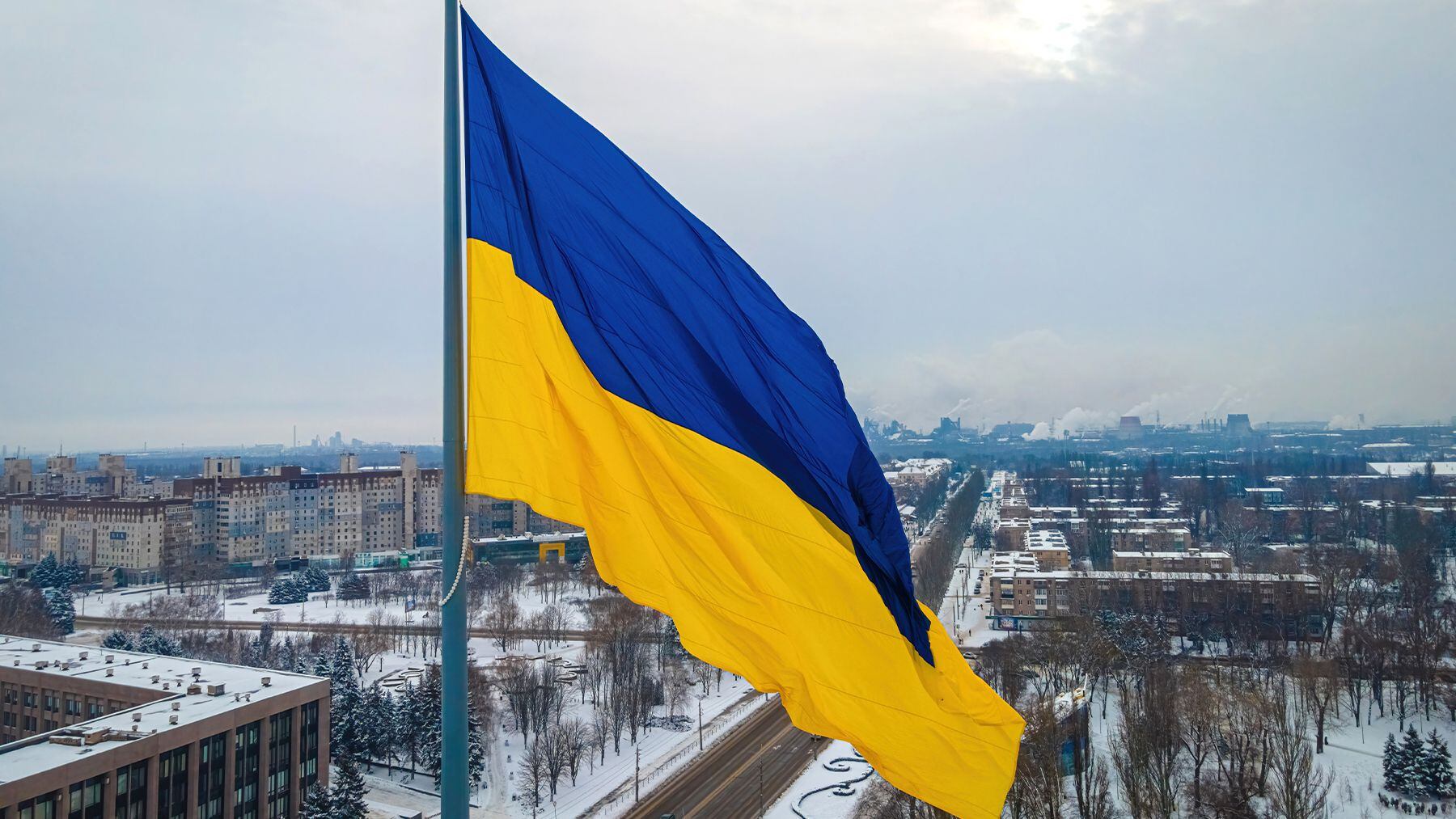How Ukraine’s Fashion-Tech Community Is Adapting to War
When Russia invaded Ukraine, Vadim Rogovskiy was in his hometown of Odessa, interviewing job candidates for 3DLook, the virtual try-on start-up he co-founded, and preparing to fly to Las Vegas for the Shoptalk retail conference.
The war put his plans on hold. As the air raid sirens became more frequent and Russian forces drew closer, he and his wife abruptly decided to take their eight-month-old child, pack their belongings and leave. They drove several hours to Moldova, where they spent the night in a shelter. With the airport there closed, they got back on the road and drove hundreds of miles further to Bucharest, Romania.
“We spent two days in quite tough conditions,” Rogovskiy said from Barcelona, where the family flew after some days in Romania and will be staying for several weeks. “It’s obviously hard, but it’s a new reality.”
Rogovskiy’s and his wife’s parents are still in Odessa. They plan to relocate them eventually.
3DLook is one of a number of fashion-tech companies with strong ties to Ukraine. The country has become a booming technology hub, producing founders or co-founders of businesses such as WhatsApp and Grammarly, providing IT services to a variety of global industries and building a strong pipeline of engineers skilled in areas such as AI and computer vision. At the same time, it has a burgeoning creative scene that’s given rise to talent in fashion and other fields. The mix of the two has led to a small but flourishing fashion-tech sector.
Ukrainians have founded companies such as DressX, among the leaders in virtual clothing, and Lookerz, which uses machine learning to generate suggested outfits on e-commerce sites. They’re also a presence in the engineering teams of companies such as Bods, a US-founded start-up focused on virtual try-on.
But Russia’s war on Ukraine has now put the future of its technology industry at risk. It’s too early to say whether entrepreneurs like Rogovskiy, or workers like those he was interviewing when Russia invaded, will return when the fighting stops. Some who stay could be killed, or their offices and equipment destroyed. Russian forces have been shelling non-military targets, and while Ukraine’s government may find better uses for tech professionals with no combat training than on the frontlines, many men and women who were civilians just weeks ago have taken up arms to fight. Ukraine has also restricted men ages 18 to 60 from leaving to aid in the defence.
“The men are still there taking part in trying to protect their country,” Christine Marzano, co-founder and chief executive of Bods, said of her Ukrainian staff, which was originally split between Kyiv and Kharkiv, though many have now left their homes. “Some of their wives and children have already crossed into other countries.”
An Uncertain Future
While 3DLook is headquartered in the US, Rogovskiy said 80 percent of its staff — about 70 people — works in its offices in Odessa, Kyiv and Lviv. It moved roughly 30 percent of that headcount outside the country and the rest to safer areas in western Ukraine. The company had a contingency plan in place that allowed it to act quickly when the war began. It had transportation for staff as well as apartments or hotels in western Ukraine and Poland already booked. The company will permanently transfer much of its staff once it’s able.
“We plan to move 80 percent of our Ukrainian people to Poland to establish our R&D and engineering offices there,” Rogovskiy said. “Of course, some people will stay in Ukraine because of their families and we are ok with that.”
DressX, which is based in the US but whose founders, Daria Shapovalova and Natalia Modenova, are Ukrainian, relocated its small Ukrainian team about a week before the invasion. Female employees largely chose to leave the country, while others moved to the western part of Ukraine. As for whether employees will return after the war, Shapovalova said they’ll support any decision individuals make.
Some companies in the broader technology sector are also planning to leave. But for many, the future is still too uncertain to say what will happen.
“No one wants to think about the worst,” said Nataly Trusova, head of business development and sales at Lookerz. “We hope that it will end one day and we’ll be able to go back to what we thought was normal.”
Still Working
Like many who have had to leave their homes in Ukraine, Trusova is still trying to work.
She and the rest of the Lookerz team are normally based in Kyiv. She’s now in Portugal. Before the invasion, as embassies began to close and rumours spread that flights would be cancelled, she went to Lisbon to stay with a friend, bringing a few weeks’ worth of clothing and her computer. She noted that the company’s founder and chief executive, Svitlana Sutyrina, has also now left Kyiv and gone to Poland. The company has felt the strain as some clients have had to close their businesses, but it hasn’t stopped.
“We are still operating as much, more or less, as before,” Trusova said.
All the companies BoF spoke with said their Ukrainian staff continue to work. As tech employees, they can do their jobs remotely. Many keep working because they have families to care for or want to support Ukraine’s economy as it suffers from the assault. Some are staying busy as a coping mechanism.
“They work harder and that’s what we see from other companies as well,” Shapovalova said. “That’s exactly how you can save your mental state.”
But many Ukrainians inside and outside the country are also toiling extra time offering whatever aid they can. Trusova is helping Ukrainians get to Portugal and find jobs and housing. She said Lookerz’s founder runs the company by day and by night moderates a chat for Ukraine’s “IT army,” a group of volunteers — many from the tech industry — that perform tasks such as launching distributed denial of service attacks on critical Russian infrastructure.
Shapovalova and Modenova are holding an event at the South by Southwest conference on March 17 to support Ukrainian creatives whose livelihoods are threatened by the war.
Companies are busy getting staff to safer areas with their families and partners. And everyone talked about the challenge of making sure employees are emotionally supported.
For now, nobody is entirely sure what the future holds. It seems unlikely Russia would have the military and economic ability to occupy Ukraine indefinitely. Trusova said even if it occupies some areas, people might return where they can. Marzano said some of her Ukrainian staff planned to stay in the country and rebuild, while some intend to emigrate once they’re able. Rogovskiy, who is also an investor, said many of the startups he knows are dispersing to other countries, but that may not be the end of the story.
“I’m sure that fashion-tech startups out of Ukraine are going to be even stronger,” he said. “I believe in their bright future, even if they cannot come back to their country for some time.”

:quality(70):focal(756x449:766x459)/cloudfront-eu-central-1.images.arcpublishing.com/businessoffashion/ESL5EMHYTRH5TOIOMM66QH5RPQ.jpg)




